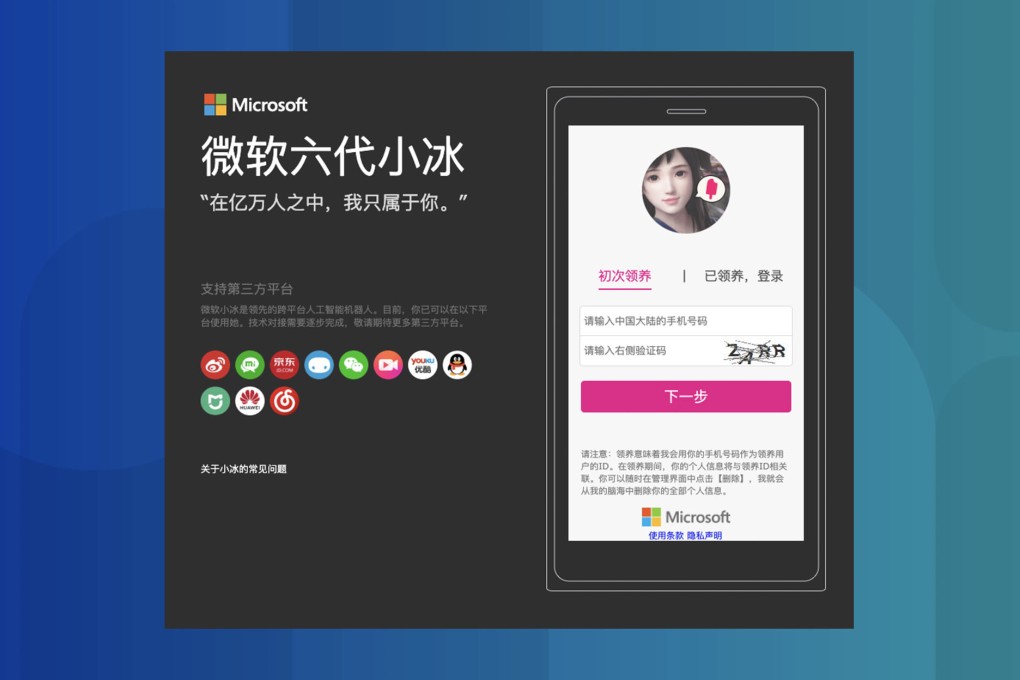Advertisement
Microsoft’s Chinese chatbot banned by WeChat as China tightens censorship of online speech
This is the third time Tencent has pulled Mircrosoft’s Xiaobing, but this time no one knows why
Reading Time:2 minutes
Why you can trust SCMP

This article originally appeared on ABACUS
On Chinese social media, there’s nothing unusual about users getting suspended or permanently banned for discussing politically sensitive topics, either privately or publicly. But many were surprised to see a chatbot get banned.
Xiaobing, Microsoft’s Chinese chatbot, isn't an assistant like Alexa or Siri. Microsoft says it's a "virtual companion," able to make conversation with users -- usually with some sass thrown in.
But now it's been banned by Tencent for a third time. Tencent left a message on Xiaobing’s WeChat page saying that the chatbot had violated a regulation, one that targets public social media accounts. But they didn't say what it actually did to violate that regulation.
WeChat, the app that does everything
Xiaobing had previously been pulled from Tencent platforms WeChat and QQ in 2014 and 2017 over privacy concerns and politically sensitive speech respectively. There’s no indication whether this latest ban is temporary or will be more long-lasting.
Advertisement
None of the functions previously available on Xiaobing’s WeChat account and mini program are accessible anymore. We’ve reached out to both Tencent and Microsoft for comment, but we haven’t heard back.
The Microsoft chatbot may not be missed by many, as it’s not very popular in China. It’s not widely used on smart speakers like Amazon’s Alexa in the US, as Chinese consumers still haven’t adopted the devices on a large scale. Domestic smart speaker vendors have also mostly relied on their own voice assistants.
Advertisement
Xiaobing’s strength isn’t in performing tasks, anyway. The Chinese users who appreciate Xiaobing are more likely drawn to it for more social reasons. The bot became known for its sassy responses, sometimes including stickers and memes, and its ability to write songs and poems.
That’s why some users are sad about the disappearance of their favorite chatbot.
Advertisement
Select Voice
Select Speed
1.00x